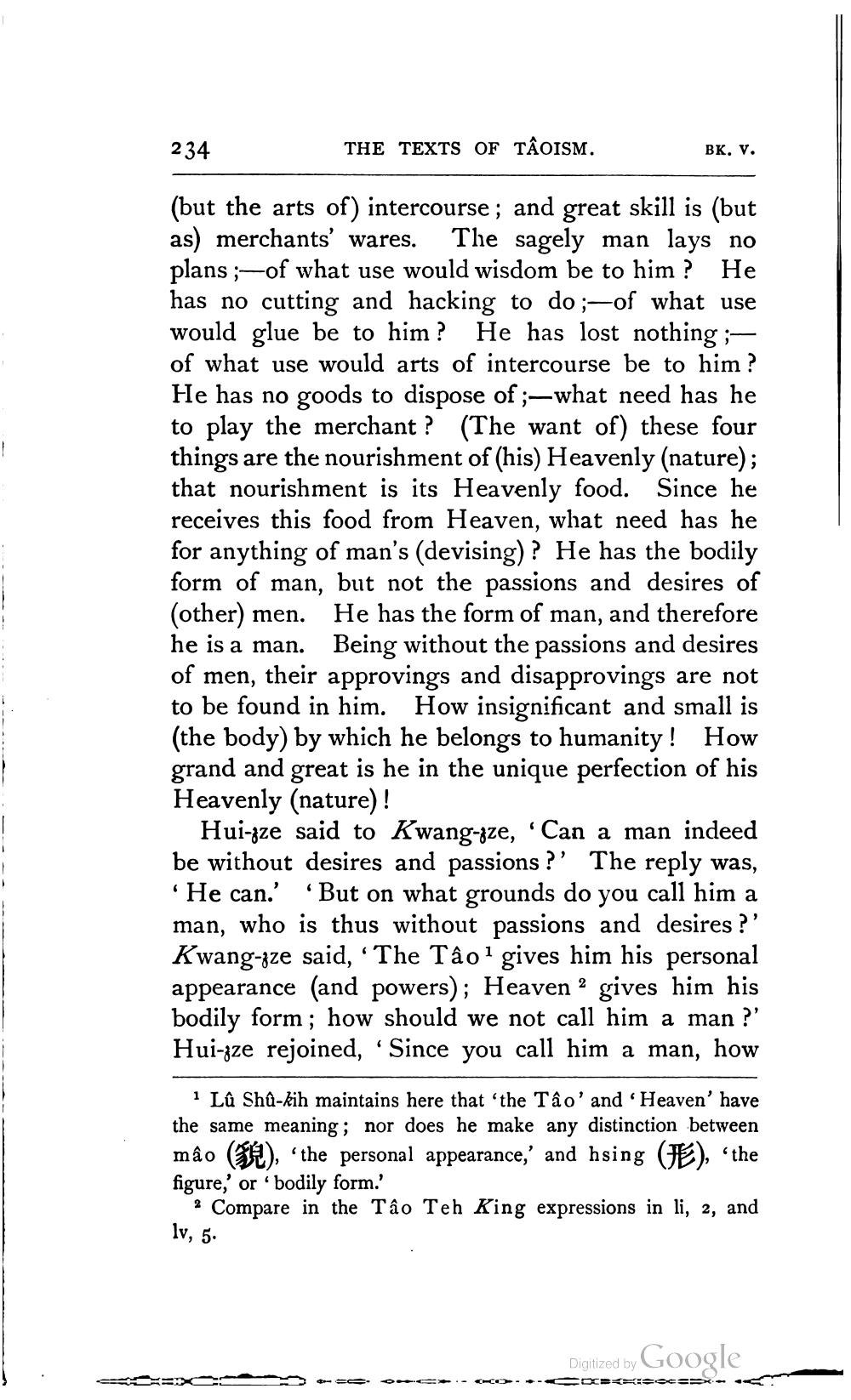________________
234
THE TEXTS OF TÂOISM.
BK, V.
(but the arts of) intercourse; and great skill is (but as) merchants wares. The sagely man lays no plans ;—of what use would wisdom be to him ? He has no cutting and hacking to do ;-of what use would glue be to him? He has lost nothing ;of what use would arts of intercourse be to him? He has no goods to dispose of;—what need has he to play the merchant ? (The want of) these four things are the nourishment of (his) Heavenly (nature); that nourishment is its Heavenly food. Since he receives this food from Heaven, what need has he for anything of man's (devising)? He has the bodily form of man, but not the passions and desires of (other) men. He has the form of man, and therefore he is a man. Being without the passions and desires of men, their approvings and disapprovings are not to be found in him. How insignificant and small is (the body) by which he belongs to humanity! How grand and great is he in the unique perfection of his Heavenly (nature)!
Hui-zze said to Kwang-gze, 'Can a man indeed be without desires and passions?' The reply was, • He can.' 'But on what grounds do you call him a man, who is thus without passions and desires ?' Kwang-zze said, 'The Tâol gives him his personal appearance (and powers); Heaven 2 gives him his bodily form ; how should we not call him a man?' Hui-zze rejoined, 'Since you call him a man, how
1 Lû Shû-kih maintains here that 'the Tâo' and 'Heaven' have the same meaning; nor does he make any distinction between mâo ), the personal appearance,' and hsing (F), the figure,' or 'bodily form.'
? Compare in the Tâo Teh King expressions in li, 2, and
lv, 5.
Digitized by Google
- ee. Occ
.- (-0..-COCES S




